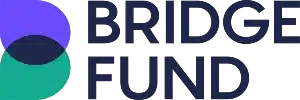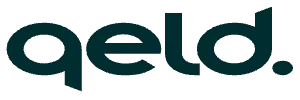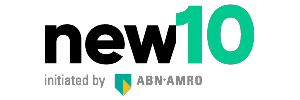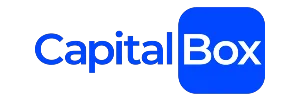Loan €50,000 for your business
€50,000 Business Loan Netherlands
Compare top Dutch lenders offering €50,000 business loans
Fast approval, flexible terms, and transparent costs
Get funded in as little as 24–72 hours

Recommended

Amount
€ 5000 – 250.000
Term
6-36 months
Interest rate
Varies
Verified Company
Non-committal application
Apply in 5 minutes
Example: Loan amount €40,000. Loan term 24 months. Interest rate 1.3% per month. Weekly payment €504.62. Total repayment €52,480. Repayment per week €504.62. Fixed interest 0.5% + premium surcharge 0.8%.

Amount
€ 5000 – 500.000
Term
3-24 months
Interest rate
1.0-2.3%
Verified Company
Fully English Site
In your account within 24 hours
Costs are based on your company’s risk profile. The one-time closing costs of 2% (minimum €650) are not included.

Amount
€ 1000 – 500.000
Term
1-18 months
Interest rate
Individual
Verified Company
Apply in 1 min
Payment within 24 hours

Amount
€ 1000 – 50.000
Term
1-36 months
Interest rate
2,4 %
Verified Company
5-star reviews
Quote same day
Example: Loan amount €19,000. Loan term 26 months. Interest rate 2.2%. Monthly payment €967.38. Interest & costs €236.61. Repayment per month €730.77. Total repayment €25,151.95.

Amount
€ 20.000 – 1.000.000
Term
3-60 months
Interest rate
3.8-12%
Verified Company
Customized offer within 15 minutes
Payment within 24 hours

Amount
€ 5.000 – 500.000
Term
12-60 months
Interest rate
3,0 %
Verified Company
Apply in 1 min
Payment within 24 hours
Example: Loan amount €200,000. Loan term 36 months. Interest rate 3.0%. Monthly payment €8,414.25. Interest & costs €2,500.00. Repayment per month €5,914.25. Total repayment €302,912.95.
Even well-run businesses need capital to grow—and a €50,000 business loan is often the sweet spot. It’s large enough to fund real expansion, yet small enough to remain accessible for startups and SMEs in the Netherlands.
Whether you’re upgrading equipment, hiring staff, or bridging short-term cash flow gaps, this loan size can unlock the next stage of your business. We explain how to qualify, what to expect in terms of costs, and where to find the best lenders offering €50,000 loans.
Is €50,000 the Right Loan Amount for Your Business?
A €50,000 loan fits a wide range of business needs without pushing debt levels too high. For many Dutch entrepreneurs, this amount is ideal for scaling operations, launching new products, renovating premises, or covering upfront supplier costs. It’s commonly used by small businesses with annual revenues between €100,000 and €1 million, big enough to invest, small enough to manage.
Before applying, assess whether €50,000 aligns with your cash flow projections and return on investment. Overborrowing can strain repayment capacity, while underfunding may stall growth. Use a detailed budget to match the loan size with your business plan. If you’re unsure, many lenders offer pre-approval tools or loan advisors to help evaluate the right amount based on financial health and business goals.
Loan Options for a €50,000 Business Loan
There are several financing routes available for securing a €50,000 business loan in the Netherlands. Each option has different eligibility criteria, costs, and approval times.
1. Traditional Bank Loans
Dutch banks such as ING, Rabobank, and ABN AMRO offer term loans with competitive interest rates. These loans are often secured and require strong financial records, making them best suited for established businesses.
2. Online Business Lenders (Fintech)
Alternative lenders like New10, Funding Circle, and October provide faster approvals, minimal paperwork, and fully digital processes. Interest rates are generally higher than banks, but accessibility is better—especially for SMEs and younger businesses.
3. Government-Backed Loans
Qredits is a non-profit backed by the Dutch government, specifically targeting small business owners and startups. They offer flexible terms, mentoring, and a more inclusive approval process.
4. Peer-to-Peer (P2P) Lending Platforms
Platforms like Geldvoorelkaar.nl and Lendahand allow investors to fund business loans directly. These are good for businesses with compelling projects but may involve slightly longer approval timelines.
5. Business Line of Credit
For businesses with ongoing financing needs, a revolving line of credit offers flexibility. Unlike a fixed €50,000 loan, you only pay interest on the amount drawn, though interest rates tend to be higher than standard term loans.
Each option comes with trade-offs. Carefully compare loan terms, interest rates, and repayment structures before choosing the right path for your business.
Eligibility Criteria
To qualify for a €50,000 business loan in the Netherlands, your company must meet specific lender requirements. While criteria vary across banks, fintechs, and P2P platforms, most providers look for the following:
Key eligibility criteria
- Registered Dutch business (KvK)
- Minimum time in operation (6–24 months)
- Sufficient annual turnover
- Positive cash flow or profit
- Good credit history (personal or business)
- Dutch business bank account
- Up-to-date tax filings
Registered Dutch Business (KvK)
Lenders require your business to be officially registered with the Kamer van Koophandel (KvK). This verifies your legal status and operating legitimacy in the Netherlands. Some platforms accept sole proprietors, while others require a BV (Besloten Vennootschap).
Minimum Time in Operation
Most lenders want to see operational history—typically 6 to 24 months. This shows that your business has traction. Some government-backed loans are open to startups, but most private lenders prefer proven revenue over time.
Sufficient Annual Turnover
Many lenders have minimum revenue thresholds, often starting around €50,000 to €100,000 per year. The higher your turnover, the more likely you are to secure favorable terms. Turnover should align with your requested loan size.
Positive Cash Flow or Profit
Loan repayments must fit your financial reality. Providers often assess net cash flow or profit margins to ensure you can cover monthly installments without liquidity issues.
Good Credit History
A clean credit record, whether personal or business, improves your chances of approval. Missed payments, defaults, or ongoing debts can reduce credibility—especially with banks. Fintechs may be more flexible but still run credit checks.
Dutch Business Bank Account
Having an active business bank account in the Netherlands is often required for disbursing the loan and verifying financial activity. It also simplifies automated repayments and compliance checks.
Up-to-Date Tax Filings
Outstanding taxes or unfiled returns are red flags. Lenders may request recent BTW (VAT) declarations or income tax statements as proof of fiscal responsibility. Staying current boosts both eligibility and trust.
Required Documentation
To apply for a €50,000 business loan, you’ll need to provide clear and verifiable documentation. This allows lenders to assess your financial health, repayment ability, and business legitimacy. Requirements may vary slightly, but most lenders in the Netherlands ask for the following:
Common documents required
- KvK registration extract
- Business bank statements
- Annual financial statements
- Profit & loss overview
- Loan purpose or investment plan
- Valid ID of the business owner
- Recent tax filings (optional but recommended)
KvK Registration Extract
A recent extract from the Dutch Chamber of Commerce (KvK) proves your business is officially registered. This document includes details like company structure, address, and registration number, which lenders use for verification.
Business Bank Statements
Most lenders request 6–12 months of recent bank statements to evaluate cash flow stability. These statements reveal revenue patterns, recurring expenses, and financial behavior.
Annual Financial Statements
If your business is more than a year old, you’ll typically need to submit your most recent year-end financials—balance sheet, income statement, and equity position. This gives lenders insight into your solvency and profitability.
Profit & Loss Overview
A more detailed breakdown of revenue and expenses helps assess how your business operates month to month. Fintech lenders often accept simplified versions generated from accounting software.
Loan Purpose or Investment Plan
Outlining how you’ll use the €50,000 strengthens your application. A clear, ROI-focused plan increases lender confidence—especially for unsecured loans.
Valid ID of the Business Owner
Lenders need to verify the identity of the applicant. A valid passport or Dutch ID card is usually sufficient. For partnerships or BVs, all directors or UBOs may need to submit identification.
Recent Tax Filings
While not always mandatory, submitting recent VAT (BTW) or income tax filings supports your credibility. It also shows the business is financially compliant and transparent.
How to Apply for a €50,000 Business Loan
Applying for a €50,000 business loan in the Netherlands involves a structured process, but many lenders now offer fast and digital onboarding. To improve your approval chances, it’s important to follow each step carefully and prepare ahead of time.
Step-by-Step Application Process
- Assess your financing needs
Define exactly how much you need and why. Ensure €50,000 aligns with your business plan, projected ROI, and cash flow. - Compare lenders and loan types
Evaluate banks, fintechs, and government-backed options. Look at interest rates, repayment terms, fees, and approval speed. - Check eligibility criteria
Review minimum requirements before applying—time in business, revenue thresholds, credit score, and documentation. - Gather required documents
Prepare your KvK extract, financial statements, bank records, loan purpose, and ID. Having everything ready speeds up the process. - Submit the application
Apply through the lender’s online portal or in-person if using a bank. Input business details, financial info, and upload documents. - Undergo credit and risk assessment
The lender evaluates your creditworthiness and may request additional documents. Some platforms offer instant decisions; others take a few days. - Receive offer and sign agreement
If approved, you’ll get a loan offer outlining the interest rate, term, repayment structure, and fees. Review carefully before signing. - Get funds disbursed
Once signed, the money is transferred—typically within 24 to 72 hours for online lenders, longer for banks.
Many Dutch lenders offer loan calculators or pre-qualification tools online. Use them to estimate your terms before a full application. Applying to multiple lenders simultaneously is common and helps you secure the best rate.
Typical Interest Rates & Loan Terms for 50.000 loan
The tables below provide an overview of typical interest rates and loan durations for a €50,000 business loan in the Netherlands:
| Loan Provider Type | Interest Rate (per annum) | Typical Loan Term |
|---|---|---|
| Traditional Bank Loans | Around 3.75% | 1 to 10 years |
| Fintech / Online Lenders | 6% to 8.85% | 12 to 60 months (1–5 years) |
Explanation of Each Option
Traditional Bank Loans
Banks in the Netherlands offer relatively low interest rates—averaging around 3.75% per year. These loans are best suited for established businesses with solid credit histories. Repayment terms are flexible and can extend up to 10 years, particularly for government-supported SME loans. However, the application process is often slower and more documentation-heavy.
Fintech / Online Lenders
Online lenders and alternative finance providers typically charge between 6% and 8.85% annually. While the interest is slightly higher, they offer much faster approval, minimal paperwork, and flexible repayment options. Most of these loans have terms ranging from 1 to 5 years, making them suitable for short- to medium-term financing needs.
Banks offer lower interest but have stricter requirements and longer processing times.
Fintech lenders provide faster access with slightly higher rates and shorter terms.
Your business profile—age, revenue, and creditworthiness—will determine which option is most viable.
Example Cost Breakdown
| Loan Term | Annual Interest Rate (p.a.) | Monthly Payment | Total Interest Over Term | Total Repayment |
|---|---|---|---|---|
| 24 months | 6% | €2,216 | €1,184 | €51,184 |
| 36 months | 9% | €1,592 | €7,312 | €57,312 |
| 60 months | 7% | €990 | €9,400 | €59,400 |
24‑month loan at 6%
- Monthly payment ≈ €2,216.
- Total interest ≈ €1,184.
- Total repayment ≈ €51,184.
36‑month loan at 9%
- Monthly payment ≈ €1,592.
- Total interest ≈ €7,312.
- Total repayment ≈ €57,312.
60‑month loan at 7%
- Monthly payment ≈ €990.
- Total interest ≈ €9,400.
- Total repayment ≈ €59,400.
FAQ
€50,000 Business Loan in the Netherlands
Yes, but options are limited. Most traditional banks require at least 1–2 years of operating history. However, government-backed lenders and some fintechs may accept startups with a solid business plan and initial revenue.
Not always. Many fintech lenders and government programs offer unsecured loans up to €50,000. Banks may request collateral or a personal guarantee depending on your financial profile.
Online lenders can disburse funds within 24 to 72 hours after approval. Banks typically take longer—often 1 to 2 weeks, depending on documentation and internal checks.
Interest rates vary between 3.75% and 8.85% per annum depending on the lender, credit risk, and loan term. Fintech lenders usually charge more than banks.
Some lenders allow early repayment without fees, while others charge prepayment penalties. Always check the loan agreement to confirm terms.
Yes. Most lenders review both business and personal credit histories—especially if the business is young or the loan is unsecured.
Yes. A clear loan purpose or investment plan is typically required. It helps lenders assess risk and determine whether the loan will support business growth.
